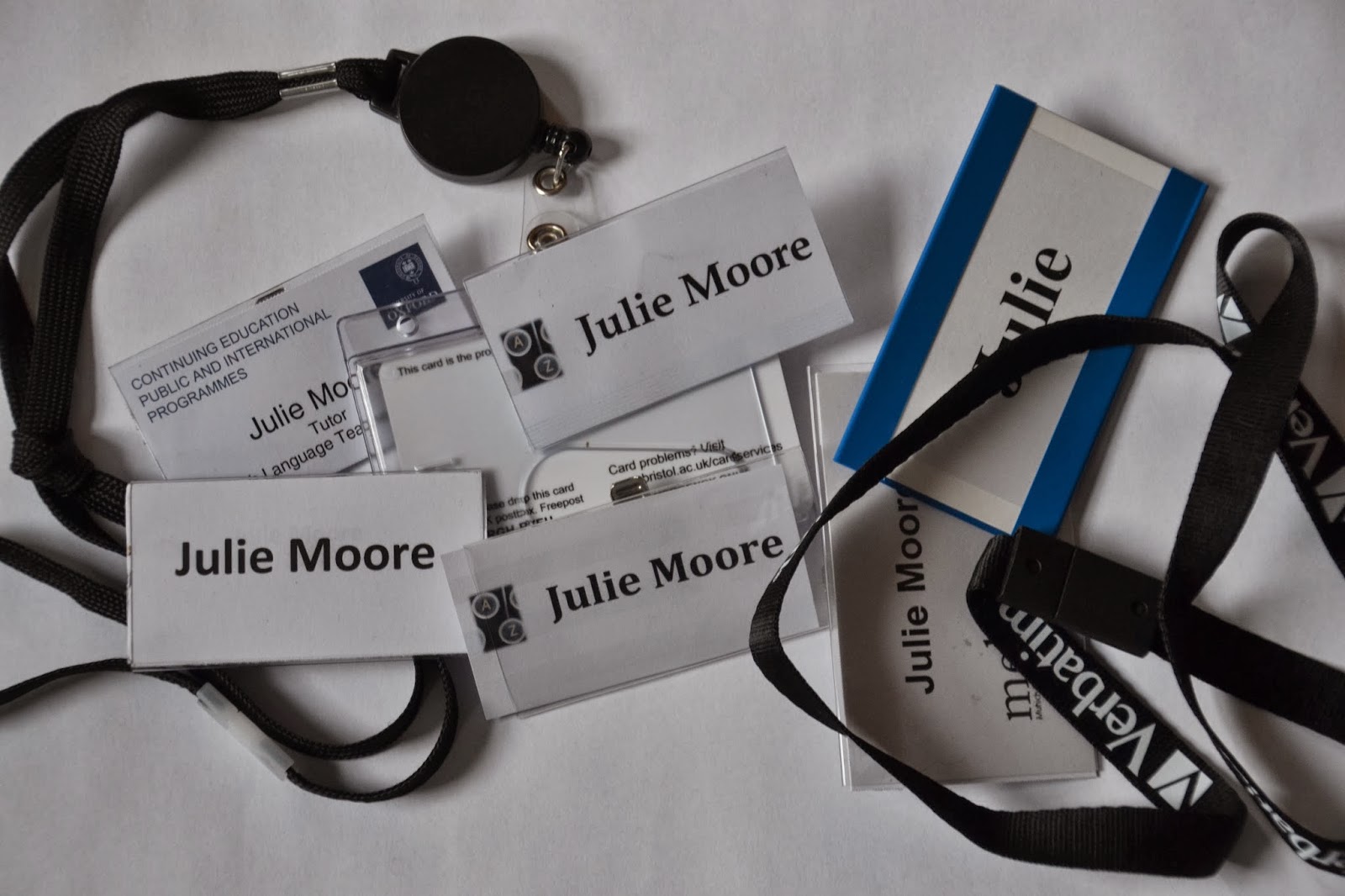IATEFL Highlights 2014
As ever, this year’s IATEFL conference was varied, inspiring, fun,
thought-provoking and yes, completely exhausting! Below I’ve picked out just a
few of my highlights:
Meeting up with people who I’ve worked with but hadn’t met
in person before – especially The Round authors who I’ve worked with this year
on editing their ebooks; Jennie Wright & Christina Rebuffet-Broadus, who
wrote Experimental Practice in ELT and Dan Barber, who wrote From English Teacher to Learner Coach along with Duncan Foord (who I sadly didn’t manage to cross
paths with).

Going along to Jennie and Christina’s session which I would
never have chosen if I hadn’t known them – just because it’s not within my usual
areas of interest – but which was great fun and I think by far the most
enjoyable session I went to this year!
The MaWSIG PCE, the first time I’d been to a pre-conference
event. There were some interesting sessions and lots of great chat, but mainly
it was just nice to be with lots of people like me! Especially as a freelance writer, rather than
a full-time teacher, it’s really nice to feel properly part of a group.
In the same vein, there was a great freelancer’s lunch on
Thursday where I got to chat with freelance colleagues old and new, to share
some of the joys and frustrations of freelancing. Big thanks to Karen White for
organising that one and an ELT T2W gathering on Friday night too – lots of fun!
I had fun doing a bit of blatant self-promotion in my How to
Write EAP Materials t-shirt. A lot of people didn’t quite ‘get’ the slogan on
the front, which some seemed to mistake for something in Spanish! It still
started a few conversations though, which after all, was the idea …
I did lots of useful networking, a mix of pre-planned
meetings, publisher’s events and just general schmoozing. I gave out lots of
cards and I’ve got fingers crossed for some potential new work down the line.
An unexpected highlight this year came from mentoring a new
speaker. I’d ticked a box on my proposal form way back in September and
completely forgotten about it. Then a couple of weeks ago I was contacted by my
‘mentee’. We did quite a bit of to-ing
and fro-ing via email ahead of the conference while he worked on preparing his
session. And although we didn’t finally manage to meet in person, he sent me a
lovely message after his session saying how helpful my input had been, which
was a really great note to end the week on!
Oh and did I mention the Turkish Baths … ?!
Labels: ELT T2W, Harrogate 2014, IATEFL, mentoring, the round





